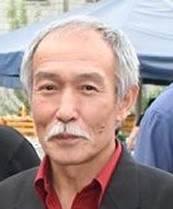Tatar, Khakass in Russia

Photo Source:
Anonymous
|
Send Joshua Project a map of this people group.
|
| People Name: | Tatar, Khakass |
| Country: | Russia |
| 10/40 Window: | No |
| Population: | 61,000 |
| World Population: | 62,800 |
| Primary Language: | Khakas |
| Primary Religion: | Ethnic Religions |
| Christian Adherents: | 2.00 % |
| Evangelicals: | 1.10 % |
| Scripture: | New Testament |
| Ministry Resources: | Yes |
| Jesus Film: | Yes |
| Audio Recordings: | Yes |
| People Cluster: | Ural-Siberian |
| Affinity Bloc: | Turkic Peoples |
| Progress Level: |
|
Introduction / History
The Khakass people are a collection of the five nomadic Turkic-speaking tribes of Kacha, Kyzyl, Sagai, Beltir, and Koibal. The Khakass live in Siberia northwest of the nation of Mongolia.
Despite efforts to Christianize them by the European Russians, Khakass today are about one half followers of folk religion and the other half Sunni Muslims.
The traditional occupation of the Khakass is that of nomadic herders. They take care of cattle, sheep, goats, horses and camels. The Soviet government tried to make the Khakass into a people who lived in one place. These efforts were partly successful.
More and more Khakass families are using Russian as their first language. The Khakass language is in danger of disappearing over the next few decades. Dozens of Siberian languages have ceased to be spoken as Siberians become Russified.
A Khakass New Testament became available in 2019.
What Are Their Lives Like?
Many Khakass no longer practice their own customs. They have adapted to the Russian culture and speak the Russian language. In the next few decades, the Khakass people may cease to be a distinct people.
Some Khakass farm the land, work in factories, mines and in the lumber industry. Some Khakass still practice their ancient occupation of nomadic herders. When the green plants of one area are exhausted, the herders move their animals and tents to another place. This movement makes it hard for Khakass children to receive an education. Some Khakass young people are leaving the old lifestyle and moving to cities to take advantage of economic and educational opportunities.
Much of the food of the Khakass consists of milk and milk products. The Khakass trade surplus animals, meat and milk for rice and other items they cannot make for themselves like cell phones and appliances. The Khakass tend to have large families. It is the adult sons' responsibility to care for elderly parents. Unfortunately, many children die before the age of ten because the Khakass often do not have access to modern medicine. The village shaman is the person a Khakass first sees for a medical issue.
What Are Their Beliefs?
Today young Khakass people are rapidly becoming secularized. Few of the present generation of Khakass youth have an interest in religion. Nearly half of the Khakass claim to be Sunni Muslims. Their brand of Islam is heavily influenced by folk religion. Other Khakass practice ethnic or folk religion. They believe that spirits inhabit the objects of nature such as rocks, rivers, trees, animals, and the sky. These spirits can bring harm on the people if the spirits are not appeased and honored. The shaman connects the Khakass with the spirit world. He provides rituals, prayers, and offerings to appease the spirits.
Only a tiny fraction of the Khakass claim to be Christ followers.
What Are Their Needs?
Most of the Khakass have never heard a clear presentation of the gospel. Teams of believers can provide modern medicine to the Khakass. Most of all the Khakass need to trust in Christ as their Lord and Savior. He alone can forgive their sins and free them from their fear of evil spirits.
Prayer Points
Ask the Lord to send workers to the Khakass of Russia.
Pray the Lord gives them Khakass leaders the desire to read the New Testament.
Pray that Khakaas children would be able to learn how to read and write.
Ask the Lord to raise up strong churches among the Khakass of Russia in this decade.